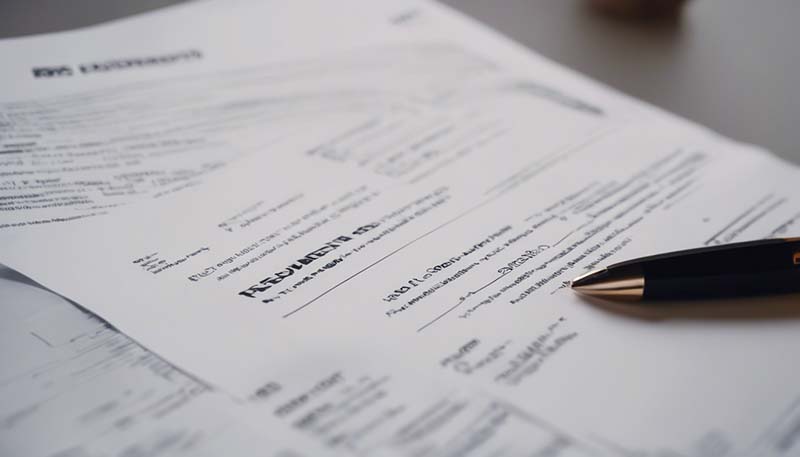How to Write a Resume for the E-Commerce Industry
2024-06-09
How to Write a Resume for the E-Commerce Industry
The e-commerce industry is a rapidly growing field that offers many exciting career opportunities. If you're looking to break into this competitive industry, it's essential to have a well-crafted resume that showcases your skills and experience. In this article, we'll provide you with a step-by-step guide on how to write a resume for the e-commerce industry.
1. Start with a Strong Objective Statement
The objective statement is the first thing that hiring managers will read on your resume. It should be a brief, compelling statement that highlights your career goals and what you can bring to the company. Here are some tips for writing an effective objective statement:
Advertisement
- Keep it concise: Aim for one or two sentences that clearly communicate your career objectives.
- Be specific: Mention the e-commerce industry and the type of role you're seeking.
- Emphasize your skills: Highlight the skills and experience that make you a strong candidate for the job.
Example Objective Statement:
"Results-driven e-commerce professional with over 5 years of experience in digital marketing and sales, seeking a challenging role as an E-Commerce Manager to leverage my expertise in driving online revenue and improving customer engagement for a dynamic company."
2. Highlight Your Relevant Experience
Your work experience is one of the most important sections of your resume. It should provide a clear overview of your professional background and demonstrate your ability to succeed in the e-commerce industry. Here are some tips for highlighting your relevant experience:
- Focus on your accomplishments: Use action verbs to describe your accomplishments and quantify your results whenever possible.
- Include relevant keywords: Use keywords from the job description to showcase your familiarity with the e-commerce industry and relevant technologies.
- Be concise: Limit your work experience to your most recent and relevant positions, and aim for 1-2 pages total.
Example Work Experience Entry:
E-Commerce Manager
XYZ Company | May 2018 - Present
- Developed and executed e-commerce strategy, resulting in a 25% increase in online sales within the first year.
- Managed a team of 5 e-commerce specialists, overseeing all aspects of product listings, pricing, and inventory management.
- Collaborated with marketing and creative teams to develop engaging email campaigns and social media content that drove website traffic and conversions.
- Leveraged data analytics tools to track and optimize website performance, resulting in a 15% improvement in conversion rates.
3. Showcase Your Education and Certifications
While work experience is the most critical factor in your resume, your education and certifications can also help set you apart from other candidates. Here are some tips for showcasing your education and certifications:

- List your highest level of education first: Start with your most recent degree or certification, and work your way backward.
- Include relevant coursework: If you have taken any courses that are directly related to e-commerce, consider listing them under your education section.
- Consider including certifications: If you have earned any relevant certifications, such as a Google Analytics or Adobe Photoshop certification, consider listing them under a separate "Certifications" section.
Example Education Entry:
Bachelor of Science in Marketing
University of ABC | Graduated May 2016
Relevant Coursework:
- Digital Marketing
- Consumer Behavior
- E-commerce and Online Retailing
- Supply Chain Management
4. Emphasize Your Technical Skills
E-commerce is a highly technical field that requires a strong understanding of various software and tools. Be sure to emphasize your technical skills on your resume, including any relevant software or programming languages. Here are some tips for highlighting your technical skills:
- Use a separate "Skills" section: Consider including a dedicated "Skills" section on your resume to showcase your technical abilities.
- Include relevant software: List any software that is commonly used in the e-commerce industry, such as Shopify, Magento, or Adobe Creative Suite.
- Mention programming languages: If you have experience with any programming languages, such as HTML, CSS, or JavaScript, be sure to include them in your skills section.
Example Skills Section:
Technical Skills:
- E-commerce Platforms: Shopify, Magento, WooCommerce
- Marketing Automation: Mailchimp, HubSpot
- Web Analytics: Google Analytics, Adobe Analytics
- SEO: On-page optimization, keyword research, competitive analysis
- Programming Languages: HTML, CSS, JavaScript
5. Customize Your Resume for Each Job Application
Finally, it's essential to customize your resume for each job application to ensure that it is tailored to the specific requirements of the position. Here are some tips for customizing your resume:
- Review the job description: Carefully read the job description and take note of any specific skills, experience, or qualifications that are mentioned.
- Adjust your objective statement: Modify your objective statement to align with the specific role and company you're applying to.
- Highlight relevant experience: Emphasize the work experience that is most relevant to the job you're applying for, and consider reordering your bullet points to showcase this experience first.
- Use keywords from the job description: Incorporate keywords from the job description into your resume to demonstrate your familiarity with the role and industry.
Conclusion
Writing a resume for the e-commerce industry can be a challenging task, but with the right approach, you can create a document that showcases your skills and experience and helps you stand out from other candidates. By following the tips outlined in this article, you'll be well on your way to crafting a resume that will impress hiring managers and land you your dream job in the e-commerce industry.
Comments